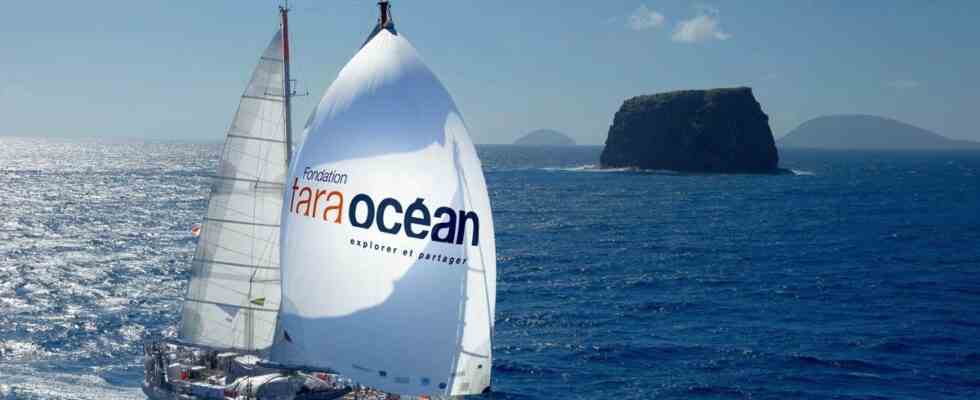After traveling around the world, all we want is to be home. After completing its 70,000 km journey around the globe, the schooner Tara returned to Lorient with thousands of samples of micro-organisms. Their analysis should provide a better understanding of the functioning of ocean plankton.
“We have no discovery to reveal to you today (Saturday)”, immediately warned Romain Troublé, director of the Tara Foundation, during a press conference on the island of Groix. After almost two years of the “Microbiome” mission, the schooner made a stopover on the Breton island before joining Lorient, its home port, on Saturday afternoon.
25,000 samples
During its journey from Chile to Africa, via the Amazon and Antarctica, the famous laboratory sailboat took nearly 25,000 samples of marine microorganisms (viruses, bacteria, prostites, animals, etc. ). “Within 18 months to two years, we will begin to have the first discoveries of this mission”, indicated Romain Troublé.
“The question we ask ourselves is: how does it work? How do all these viruses, these bacteria, these marine microalgae manage to interact to produce oxygen, store carbon and produce proteins? “, explained Romain Troubled. “And how will it change tomorrow with climate change and pollution? »
See you in 2023
The schooner was particularly interested in the impact of the Amazon River on ocean life and the ocean microbiome. “We think that the Amazon has a role in the development of sargassum,” noted Samuel Chaffront, CNRS researcher at Nantes University. The role of plastic pollution was also studied during the 22-month mission.
The 36 m long and 10 m wide schooner, with several laboratories on board, accommodates 14 people, including half a dozen scientists of all nationalities. The latter took turns on several occasions according to their research topics. After several months in dry dock, the schooner will cast off in the spring of 2023 for a mission on chemical pollution off the European coast.

